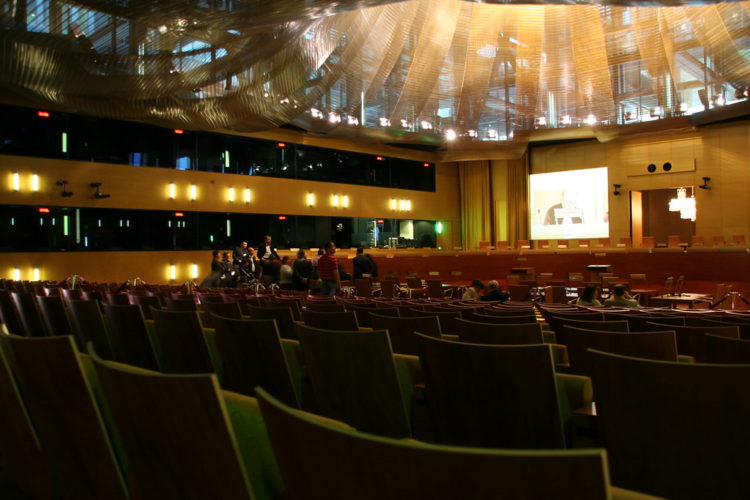By Ashleigh Young And Sheila Mckenzie-
The EU Grand Chamber is to rule on a case brought by Amnesty international and number of Human Rights Groups to restrict the excessive powers of the government in obtaining the most intimate details of its citizens private life.
The Grand Chamber yesterday began considerations into the legality of the overtly bulk surveillance regime by the Uk at the European Convention on Human Rights. The ruling is expected to be given around early next year, The Eye Of Media.Com heard.
The Applicants consists of 14 groups including Equality Of Human Rights Commission, The European , The Law Society Of Human Rights The National Union Of Journalists, Media Lawyers Association, and others. The applicants collectively invited the Grand Chamber to state the law authoritatively on modern bulk surveillance practices. The Applicants submitted that bulk surveillance is incompatible with the protection of privacy and freedom of expression of individuals which the Convention provides.
The Applicants also invited the Grand Chamber to find that the UK’s bulk surveillance regime breaches Articles 10 of the Convention. The case followed Edward Snowden’s disclosure in 2013 that the UK’s GCHQ intelligence agency was secretly intercepting and processing millions of private communications of ordinary people on a daily basis without a clear legal foundation or proper safeguards – sharing data with the USA’s National Security Agency, as well as other countries’ intelligence agencies.
Last September, a lower chamber of the ECtHR ruled that UK laws enabling mass surveillance were unlawful, violating rights to privacy and freedom of expression. The court observed that the UK’s regime for authorising bulk interception was incapable of keeping the “interference” to what is “necessary in a democratic society”.
Amnesty and others then asked the court’s Grand Chamber to go further by entirely rejecting the UK’s bulk surveillance regime. They claimed that the UK’s regime is in violation of Articles 8 and 10, concluding the UK regime is inadequate, applying the Court’s existing case law. The Applicants then invited the Grand Chamber to update the “minimum safeguards” established in the Court’s case law.
Those safeguards include protection against the intrusive profiles of individuals and groups, including intimate aspects of people’s private lives by intercepting and analysing communications in bulk
The applicants argued that Bulk interception interferes with the rights in Articles 8(1) and 10(1) The UK bulk interception regime is neither strictly necessary nor proportionate to the severe interference with Articles 8 and 10 rights entailed. The mass interception processing and storage of private communications is not compatible with the Convention.
The UK arrangements for bulk interception are not in accordance with the law. Important rules governing the scheme are not accessible. The disclosed arrangements are not foreseeable. Nor do they provide adequate safeguards against arbitrary conduct.
The groups want sufficient protection for communications data, stressing that Automated, bulk analysis of communications data can be more invasive of private life than content. The applicants say that additional safeguards are now required in light of increased technological capabilities to protect democratic societies from the risks of bulk surveillance to privacy and other fundamental freedoms.

